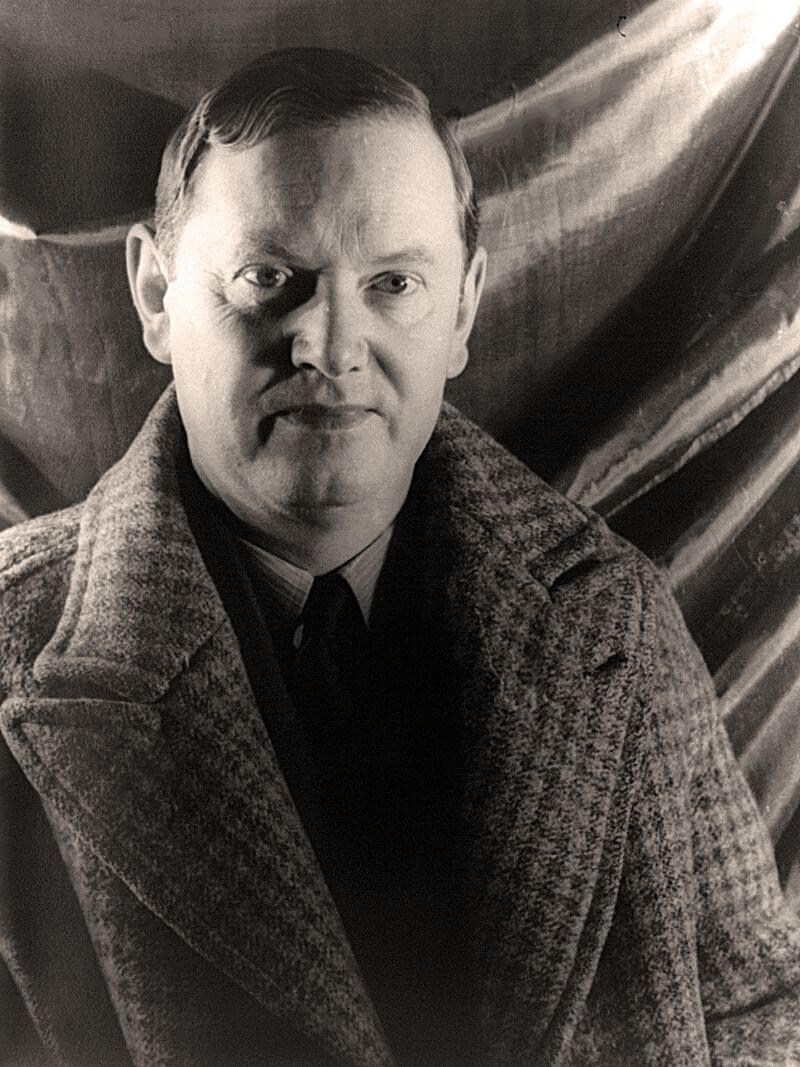Image: Evelyn Waugh (Wikimedia Commons)
As a token of our gratitude for all the prayers and Masses said for our recent situation of ill health and need, my husband, Dr. Robert Hickson and I wish to present to our most generous readers at OnePeterFive the prayer of a mother for the conversion of her as- yet unbaptized son which has touched us for many years now and which my husband has often shared with friends and his students every year at Epiphany.
The prayer is written by the British author Evelyn Waugh, in his 1950 novel Helena. Thus the prayer comes from the heart of St. Helena, written at the end of Waugh’s chapter, entitled “Epiphany,” where Helena goes to Bethlehem for the Feast of Epiphany and encounters the re-enactment of the coming of the Magi, with whom she intimately identifies as another “late-comer to Christ.” Her insights and her prayer come just before she was blessed to discover finally the True Cross in the Holy Land.
Now we invite our readers to let these most beautiful words of a mother seep into their hearts:
St. Helen’s prayer to the Three Magi on the Feast of the Epiphany, at the end of the chapter “Epiphany,” from Helena by Evelyn Waugh (1950, Little, Brown & Co., Boston):
Everyone in Jerusalem remarked on Helena’s vigour. The old lady was positively indefatigable, they all said. But in truth she was very weary. Winter set in. The convent was exposed, damp and chill. It was not thus, in Dalmatia, that she had planned her old age. She seemed to have come to the end of her questions. No one was helpful. No one was hopeful. At Christmas she had not the strength to ride out with the procession to Bethlehem. She went to communion in the convent chapel and that day allowed the nuns to make a fuss of her, spending the feast crouched over a wood fire which they lit for her in her room.
But by Twelfth Night she rallied and on the eve set out by litter along the five rough miles to the shrine of the Nativity. There was no throng of pilgrims. [Bishop] Macarius and his people kept Epiphany in their own church. Only the little community of Bethlehem greeted her and led her to the room they had prepared. She rested there dozing until an hour before dawn when they called her and led her out under the stars, then down onto the stable-cave, where they made a place for her on the women’s side of the small, packed congregation.
The low vault was full of lamps and the air close and still. Silver bells announced the coming of the three vested, bearded monks, who prostrated themselves before the altar. So the long liturgy began.
Helena knew little Greek and her thoughts were not in the words nor anywhere in the immediate scene. She forgot even her quest and was dead to everything except the swaddled child long ago and those three royal sages who had come from so far to adore him.
“This is my day, she thought, “and these are my kind.”
Perhaps she apprehended that her fame, like theirs, would live in one historic act of devotion; that she too had emerged from a kind of ‘ουτοπία’ [Utopia] or nameless realm and would vanish like them in the sinking nursery fire-light among the picture-books and the day’s toys.
“Like me,” she said to them, “you were late in coming. The shepherds were here long before; even the cattle. They had joined the chorus of angels before you were on your way. For you the primordial discipline of the heavens was relaxed and a new defiant light blazed among the disconcerted stars.
“How laboriously you came, taking sights and calculations, where the shepherds had run barefoot! How odd you looked on the road, attended by what outlandish liveries, laden with such preposterous gifts!
“You came at length to the final stage of your pilgrimage and the great star stood still above you. What did you do? You stopped to call on King Herod. Deadly exchange of compliments in which there began that unended war of mobs and magistrates against the innocent!
“Yet you came, and were not turned away. You too found room at the manger. Your gifts were not needed, but they were accepted and put carefully by, for they were brought with love. In that new order of charity that had just come to life there was room for you too. You were not lower in the eyes of the holy family than the ox or the ass.
“You are my especial patrons,” said Helena, “and patrons of all late-comers, of all who have had a tedious journey to make to the truth, of all who are confused with knowledge and speculation, of all who through politeness make themselves partners in guilt, of all who stand in danger by reason of their talents.
“Dear cousins, pray for me,” said Helena, “and for my poor overloaded son [the Emperor Constantine himself, who was still unbaptized]. May he, too, before the end find kneeling-space in the straw. Pray for the great, lest they perish utterly. And pray for Lactantius and Marcias and the young poets of Trèves and for the souls of my wild, blind ancestors; for their sly foe Odysseus and for the great Longinus.
“For His sake who did not reject your curious gifts, pray always for the learned, the oblique, the delicate. Let them not be quite forgotten at the Throne of God when the simple come into their kingdom.”


